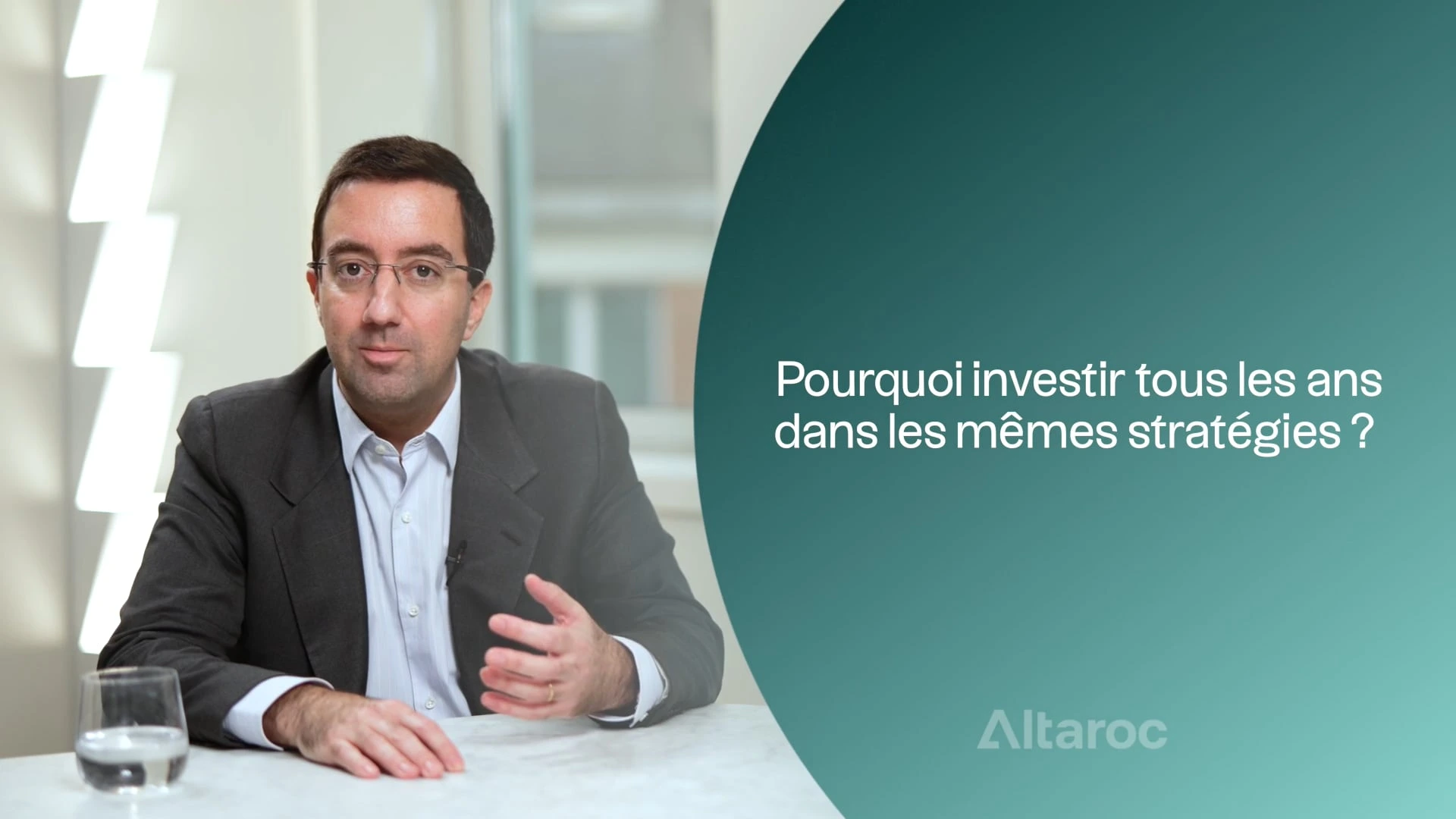Why invest in the same strategies every year?
Summary
Written transcription
The first reason is, as I explained earlier, that buyout and Growth Equity are the two Private Equity strategies that offer the best return risk and liquidity profile for our private clients. If I look at the performance of mature vintages from 2000 to 2013, according to Preqin, which is one of the benchmark private equity databases, buyout and global Growth Equity generated an average net IRR of 16%. I'm averaging the average performance over thirteen vintages. The second reason is that it's important to invest consistently over time in private equity. If there's one important rule in private equity funds of funds, it's that you can't do market timing. It's true that vintages following recessions tend to be better, as managers invest their funds at lower valuations. But when you invest in a private equity fund, it's not you who decides the timing of the underlying investments in the companies that make up your portfolio. It's the fund manager who decides. That's why the winning formula of the best institutional investors in this asset class over the long term is to invest in funds on a regular basis in each vintage. And so the right way to invest, and this is what I've been doing for over 17 years with some of the biggest institutions, is to deploy the same strategy every year with different managers to gain exposure to different economic cycles and diversify your portfolio of managers.
It's absolutely not about changing strategies from time to time to succumb to the fashions of the moment, or to test new market segments whose historical performance has been less good, but which may be trendy. Finally, the third reason for reinvesting in the same strategies every year is that, to gain access to the best managers, you have to present yourself as a long-term investor. This means convincing the manager that you can reinvest in his successor funds. At Altaroc, thanks to a large number of commitments each year in buyout and Growth funds only, Equity is constantly able to re-commit to the successor funds of its top managers, and can therefore present itself as a long-term investor in order to gain access to and attract the best managers. I'm also often asked about our sector choices, and why we don't change our sectors from one year to the next. Well, the reason is the same as above. We've identified the sectors whose growth and growth drivers are secular. So we aim to continue supporting managers in these best market segments, and to select only managers who have been successfully operating in these market segments for over 20 years. It would make no sense to choose new, more fashionable sectors.
And for those of you who have been tempted into private equity, beware of the danger! I could mention two or three sectors that have been fashionable for the last five or ten years, but for which there is as yet no track-record, or even where sums have been swallowed up, such as clean tech or solar energy. Private equity is a business that is measured over time. That's why it's essential to choose managers with a very good track record in their chosen sectors, and whose processes, governance and methods have been tried and tested over many investment cycles. If I had to sum up our investment approach, it's very fundamental and never gives in to the fashion of the moment. I can't say whether a new strategy will be successful. It takes 20 years to find out. What I can do, however, is analyze why and how the best players in a promising underlying asset have created value. And finally, we even look for players who have been doing things better and better every year for the past 20 years. And if there's one word we love, it's playbook. We love to work with players who support successful companies in the best segments, developing ever greater expertise in their sector and successfully applying the same industrial recipes that have contributed to the best deals in the past.





